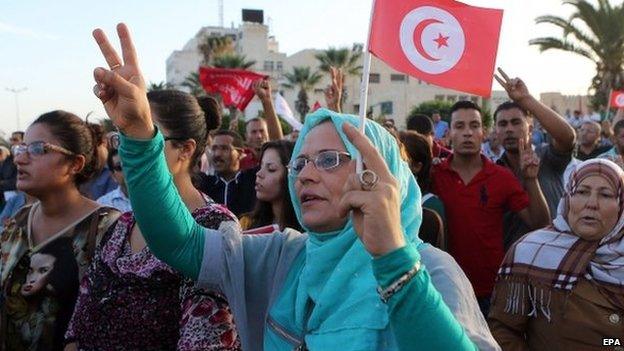Press welcome secularist win in Tunisia
- Published
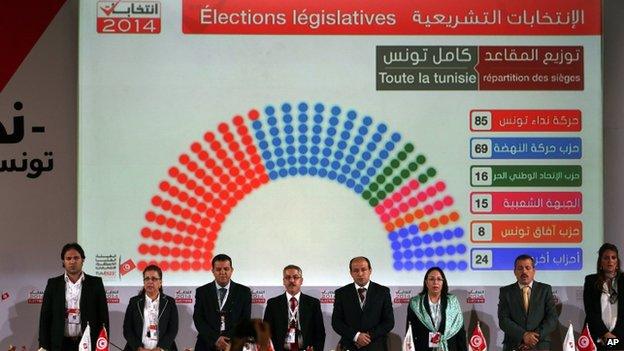
Official results confirm earlier predictions that Tunisia's secularist party Nidaa Tounes has won the election
Newspapers in Tunisia and the wider Arab world have welcomed the success of the secularist Nidaa Tounes party at Tunisia's general election.
The party took 85 seats in the 217-seat parliament, while the Islamist Ennahda party won 69 seats.
One local newspaper says Nidaa Tounes now has "strong momentum" for the forthcoming presidential election, while a Saudi newspaper sees "the dream of political Islam" being eroded,
Tunisian press
"The win will give Nidaa Tounes' presidential candidate strong momentum in the presidential race," state-funded daily Essahafa, external says in an editorial.
The election has re-united the country, Abd-al-Basit Bin Hasan of Le Maghreb, external daily argues.
"From today, there is no need to worry about Tunisia: it will remain a nation-state and will become democratic," he adds.
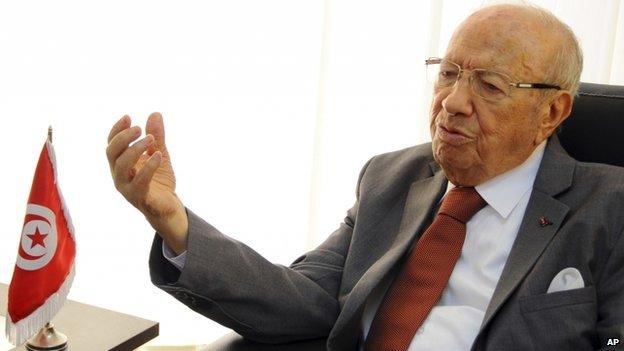
Nidaa Tounes leader Beji Caid Essebsi is also a candidate in the upcoming presidential polls
While satisfied with the election result, some papers warn Nidaa Tounes that there is serious work ahead. Alchourouk, external's Fatmah Bin Abdallah al-Karray tells the victors that "their responsibility starts by shouldering the burdens of ruling ".
"Taking power is a duty not a reward, and rotation of power is not an act of kindness," she adds.
On its front page, privately-owned daily Assabah, external quotes economic experts as saying that Tunisia's "economic file is one of the most thorny issues" facing the upcoming government.
Commentator Lamya al-Sharif reports an "unprecedented" rise in food prices this week in Tunisia. "Some level the blame on suppliers who made their gains while everyone was busy with the election," she writes.
Arab press
In Egypt, commentators say the Tunisian experience shows there is a popular movement to oust Islamists from power.
Muhammad Abu-al-Fadl of state-run Al-Ahram, external says secular Egyptians must take note of the Tunisian election result and "prepare and line up their ranks" ahead of their own forthcoming parliamentary election rather than "fearing the return of the Islamists".
The Al-Yawm al-Sabi , externalnewspaper draws parallels between the Nidaa Tounes victory and mass protests in Egypt that deposed the Muslim Brotherhood government.
Both indicate "popular dissent in the two countries against the Brotherhood", Adil al-Sanhuri writes. "It is a step back from giving the Islamist group power again," he adds.
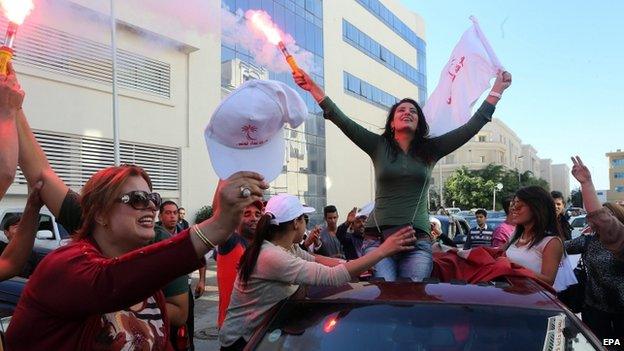
Supporters of Beji Caid Essebsi had much to celebrate following the result
Saudi Arabia's Al-Watan, external newspaper says "the dream of political Islam is eroding". Columnist Mazin al-Iliwi says public awareness has turned away from "religious and ideological discourse... As a result the Brotherhood in Tunisia has failed to seize power like Egypt's Brotherhood."
In fact, al-Iliwi says, the Islamist Ennahda party needs to mend fences by "accepting partnership and integration or face a similar fate to Egypt's Brotherhood", who are banned and branded a terrorist group by the Egyptian government.
London-based pan-Arab newspaper Al-Arab al-Alamiyah, external calls the secularist success a "light at the end of the tunnel". Commentator Abd-al-Rahman Matar says the election in Tunisia was "one of the best experiences compared to that of all the Arab Springs that have been tarnished by blood and gunpowder."
BBC Monitoring reports and analyses news from TV, radio, web and print media around the world. For more reports from BBC Monitoring, click here. You can follow BBC Monitoring on Twitter, external and Facebook, external.
- Published30 October 2014
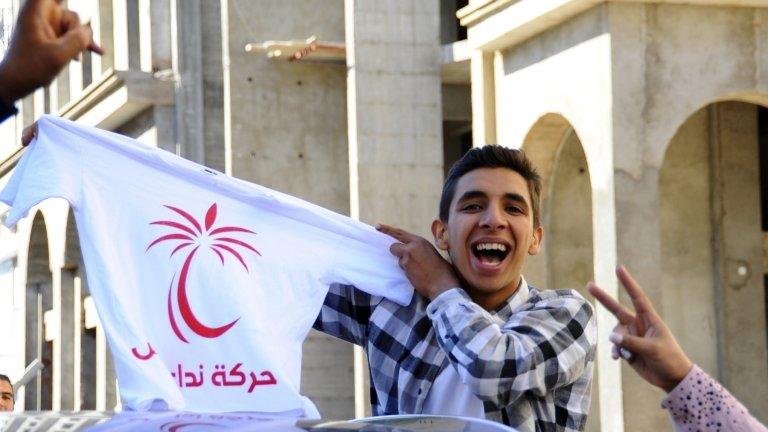
- Published1 November 2017
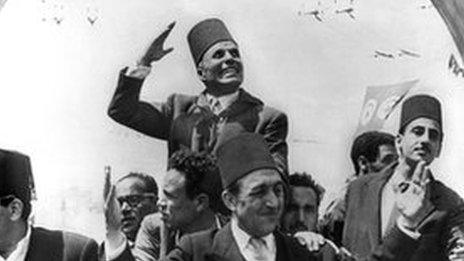
- Published24 October 2014
